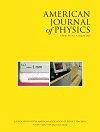因果关系、决定论和物理学
IF 0.8
4区 教育学
Q3 EDUCATION, SCIENTIFIC DISCIPLINES
引用次数: 0
摘要
尽管在关于“因果关系”和“决定论”的辩论中经常引用物理定律或理论,但我们目前对物理学的最佳理解仅赋予这些概念有限的(尽管仍然非常广泛)有效性。因此,将它们视为偏见可能会有所帮助(尤其是在必须应对量子力学带来的挑战时),这是从我们对有限(本质上是经典的)现象和/或理论模型的经验中推断出来的。本文讨论了随着时间的推移,不同的物理理论是如何强化或挑战这些偏见的,特别关注保守的“拉普拉斯”力学、耗散力学(热物理)和量子力学。本文章由计算机程序翻译,如有差异,请以英文原文为准。
Causality, determinism, and physics
Although physical laws or theories are often invoked in debates over “causality” and “determinism,” our best current understanding of physics assigns only a limited (though still very broad) validity to these concepts. It may be, thus, helpful (particularly when having to deal with the challenges posed by quantum mechanics) to think of them as prejudices, extrapolated from our experience with a limited (essentially classical) set of phenomena and/or theoretical models. This paper discusses how, over time, different physical theories have either reinforced or challenged these prejudices, focusing specifically on conservative “Laplacian” mechanics, dissipative mechanics (thermal physics), and quantum mechanics.
求助全文
通过发布文献求助,成功后即可免费获取论文全文。
去求助
来源期刊

American Journal of Physics
物理-物理:综合
CiteScore
1.80
自引率
11.10%
发文量
146
审稿时长
3 months
期刊介绍:
The mission of the American Journal of Physics (AJP) is to publish articles on the educational and cultural aspects of physics that are useful, interesting, and accessible to a diverse audience of physics students, educators, and researchers. Our audience generally reads outside their specialties to broaden their understanding of physics and to expand and enhance their pedagogical toolkits at the undergraduate and graduate levels.
 求助内容:
求助内容: 应助结果提醒方式:
应助结果提醒方式:


